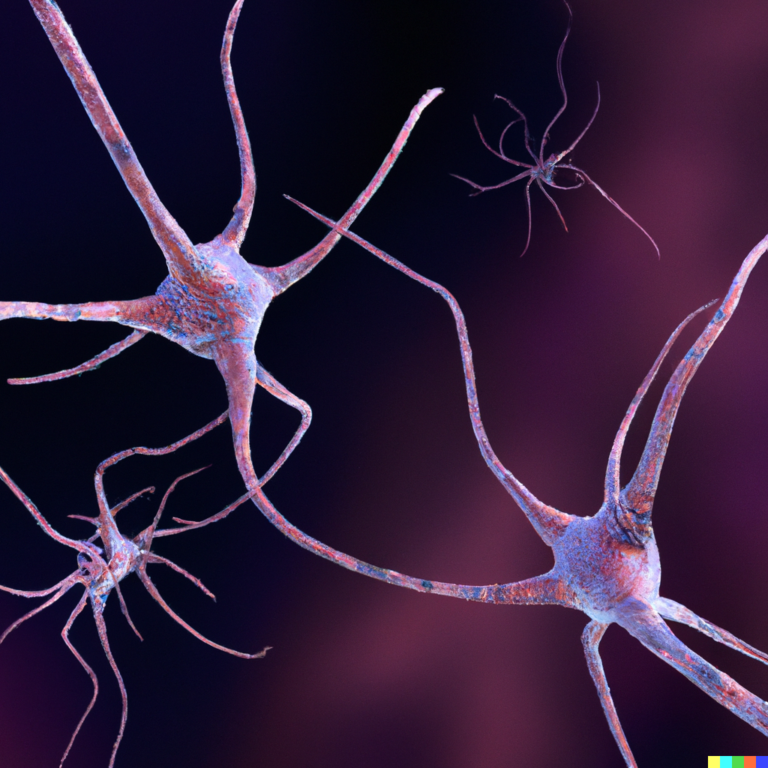**The Impact of Chronic Stress on Neuronal Function**
Chronic stress is a common experience in today’s fast-paced world. It can come from work, relationships, or even daily routines. But did you know that chronic stress can have a profound impact on your brain? Let’s explore how it affects neuronal function and what this means for your overall health.
### How Chronic Stress Affects the Brain
When you experience stress, your body releases stress hormones like cortisol. These hormones help you respond to the immediate threat, but when stress becomes chronic, it can start to damage your brain. Here’s how:
1. **Dendritic Atrophy and Spine Loss**: The prefrontal cortex (PFC), a part of the brain responsible for executive functions and emotional regulation, is particularly affected. Chronic stress can lead to the loss of dendrites and spines, which are essential for communication between neurons. This can impair your ability to make decisions, regulate emotions, and even remember things[1].
2. **Neurotransmitter Disruptions**: Stress hormones disrupt the balance of neurotransmitters like glutamate and GABA, which are crucial for transmitting signals between neurons. This disruption can lead to problems with mood regulation, anxiety, and even depression[1].
3. **Synaptic Plasticity Changes**: Synaptic plasticity is the brain’s ability to adapt and change based on experience. Chronic stress can alter this process, making it harder for the brain to rewire itself in response to new information. This can affect learning and memory[1].
4. **Hippocampus Damage**: The hippocampus is a region of the brain involved in memory formation. Chronic stress can damage the hippocampus, leading to memory impairments and difficulty contextualizing traumatic experiences[3].
5. **Amygdala Overactivation**: The amygdala is the brain’s emotional processing center. Chronic stress can make it hyperactive, leading to increased fear responses and difficulty distinguishing between real and perceived threats[3].
### The Consequences of Chronic Stress
The impact of chronic stress on neuronal function is not just theoretical; it has real-world consequences. Here are some of the effects:
1. **Mental Health Disorders**: Chronic stress is linked to depression, anxiety, and even suicidal thoughts. Social isolation, which often accompanies chronic stress, can exacerbate these conditions[2].
2. **Cognitive Decline**: Prolonged loneliness and social isolation can lead to cognitive decline and a higher risk of dementia. The lack of social stimulation may reduce neural activity, weakening connections in the brain essential for cognitive health[2].
3. **Physical Health Risks**: Chronic stress can increase blood pressure and inflammation, straining the heart and making it more vulnerable to disease. It can also weaken the immune system, making individuals more susceptible to infections and illnesses[2].
### Combating Chronic Stress
While chronic stress is a significant challenge, there are ways to mitigate its effects:
1. **Mindfulness and Cognitive Behavioral Therapy**: These therapies can help reduce stress levels and promote neuroplasticity, allowing the brain to adapt and recover[3].
2. **Social Interaction**: Engaging in social activities can act as a buffer against stress. Building strong social connections can help regulate emotions and reduce feelings of loneliness[2].
3. **Healthy Lifestyle**: Maintaining a healthy lifestyle, including regular exercise, balanced diet, and adequate sleep, can help manage stress levels and support overall brain health.
In conclusion, chronic stress has a profound impact on neuronal function, affecting various regions of the brain and leading to a range of physical and mental health issues. By understanding these effects and taking steps to manage stress, we can better protect our brain health and overall well-being.





